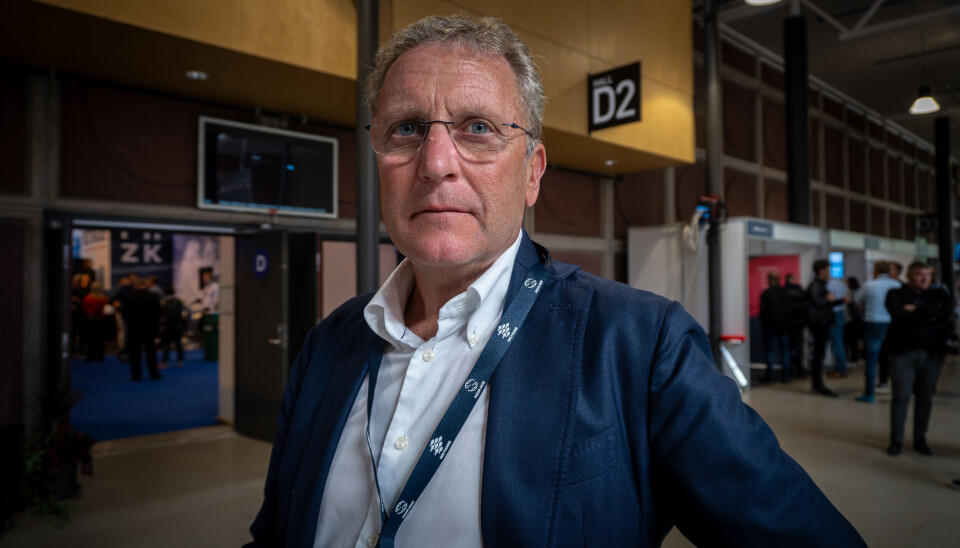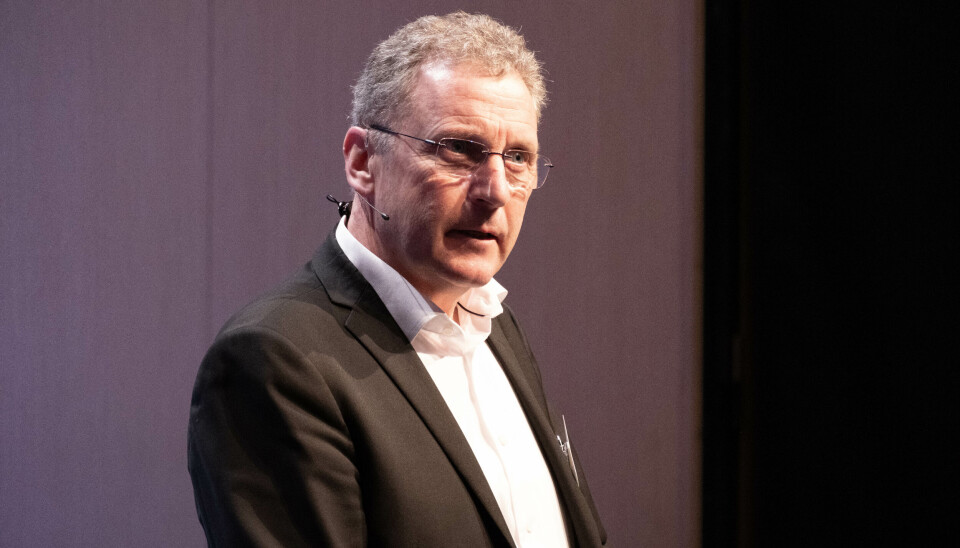
Grieg Seafood's results worsened in third quarter
The Norway and Canada salmon farmer made an operating loss of NOK 175m (£12.5m / CAD 22.1m) for the third quarter of 2024, approximately double the amount lost in the same period last year.
The information was revealed in the company's Q3 report, published today.
Harvest volume increased to 17,806 tonnes from 12,245 tonnes the previous year, resulting in an operational EBIT per kilo of NOK -9.8 (£ -0.70 / CAD -1.24), compared to NOK -7.0 in Q3, 2023.
Regional results
- Rogaland, Norway: The harvest volume increased by 79% to 8,543 gutted weight tonnes (4,783 gwt), driven by good capacity utilisation and improved biomass production. EBIT per kilo ended at NOK 8.8 (0.7), despite lower prices at the start of the quarter.
- Finnmark, Norway: With a volume of 6,045 gwt (1,354 gwt), the region exceeded expectations by 1,000 tonnes. EBIT per kilo improved to NOK -1.0 (-27.1) due to a higher proportion of superior fish, but lower average weights and lower prices at the end of the quarter weighed on the results.
- British Columbia (BC), Canada: The region was severely affected by algal blooms and low oxygen levels, leading to increased mortality. The harvest volume was 3,217 gwt (6,108), with an EBIT per kilo of NOK -67.7 (-3.2).

Mixed results
Grief Seafood chief executive Andreas Kvame stated in the announcement that the third quarter was a mixed experience for the company.
"Although the financial results were affected by seasonally lower spot prices and costs related to previous events, the underlying results were good."
He says the development was particularly positive in Rogaland and Finnmark, where the company ends the third quarter with record-high biomass in the sea in Norway after a historically high production in the sea throughout the quarter.
Lower prices
Kvame emphasised that Finnmark experienced strong production in the sea during the quarter, with maximum utilisation of biomass capacity and rebuilding of biomass after challenges with the Spiro parasite.
"The region still faces biological challenges, including sea lice. However, we are pleased that proactive investments in treatment capacity are yielding positive results, contributing to better biological control and fish welfare."
Kvame stated that the results in the region were affected by seasonally lower prices and the harvesting of the remaining fish that were affected by Spiro.
"Production costs continued to decrease, confirming our expectations of a positive development going forward."
Algae affected growth
The Grieg boss said Rogaland also had strong production at sea, driven by high capacity utilisation and good biological performance.
"Although revenues were affected by lower prices, costs fell during the quarter and are expected to remain stable in the next quarter."
The company's operations in British Columbia were affected by an algal bloom, which significantly reduced the survival rate and impacted growth. The harvesting for 2024 was completed in the quarter with a total volume of 12,500 gwt.
Open net pen salmon farming in BC will be banned by the end of June 2029. Floating closed containment will be allowed, although the federal government has not yet specified what technology will be acceptable.
"A decision on the transition plan for the salmon farming industry in the region is yet to be made. As Grieg Seafood awaits the transition plan to be concluded, investments are put on hold," commented Kvame.
Expecting 11,000 tonnes in Newfoundland
Grieg Seafood's operations in Newfoundland are developing according to plan. There were no fish available for harvest during the quarter. The harvest of the second generation started in October, and the total harvest volume for the entire year is expected to be around 11,000 gwt.
Going forward, Kvame says that investments in operating assets and biomass are progressing mostly according to plan.
"We are excited about the first release of smolt in Årdal Aqua in Rogaland and look forward to the completion of the facility's remaining units in 2025. I am also pleased to say that the construction of our new post-smolt facilities in Finnmark and Newfoundland, as well as the VAP facility at Gardermoen (Oslo Airport), is progressing as planned."
Trouble with jellyfish
So far in the fourth quarter, the company has mainly experienced good production in seawater in all their regions.
"In Finnmark, we have unfortunately been affected by string jellyfish at the Vinnalandet site, which has led to increased mortality at this farming location," the company stated.
The situation is being closely monitored, and measures have been implemented to ensure fish welfare, according to the announcement.
The company has already carried out early harvesting, and due to lower harvest weights, production costs for the fourth quarter of 2024 are expected to increase compared to the third quarter of 2024. The lower harvest weight will also have a negative impact on price achievement.
"Costs related to mortality write-downs and higher production costs are estimated to be in the range of NOK 70 to 90 million for the fourth quarter of 2024," the company said.
Expecting a stable market
To maintain financial flexibility, Grieg Seafood reported that in the fourth quarter of 2024, it entered into a bridge financing agreement of NOK 750 million with Nordea and DNB Bank as arrangers and lenders.
The estimated contract share for the Norwegian operations is 7% for the fourth quarter of 2024 and 8% for the entire year 2024, the company reports.
In the fourth quarter of 2024, a harvest volume of 24,400 gwt is expected, distributed as follows:
- Rogaland: 7,300 gwt
- Finnmark: 11,400 gwt
- BC: 0 gwt
- NL: 5,700 gwt
The company guides for a total harvest volume of 78,500 gwt in 2024 (unchanged since the second quarter 2024 report), distributed as follows:
- Rogaland: 28,000 gwt
- Finnmark: 27,000 gwt
- BC: 12,500 gwt
- NL: 11,000 gwt
For 2025, the company guides for a harvest volume of 84,000 tonnes, distributed as follows:
- Rogaland: 30,000 gwt
- Finnmark: 32,000 gwt
- BC: 12,000 gwt
- NL: 10,000 gwt
Incoming US President Donald Trump said on Monday that he will impose punitive tariffs on goods from Canada and Mexico as soon as he moves into the White House.
The tariff news sent the price of shares in Grieg Seafood, which has production in both Canada and Norway, sharply down on Tuesday, writes Dagens Næringsliv. Grieg Seafood fell over 10.8%.



































































